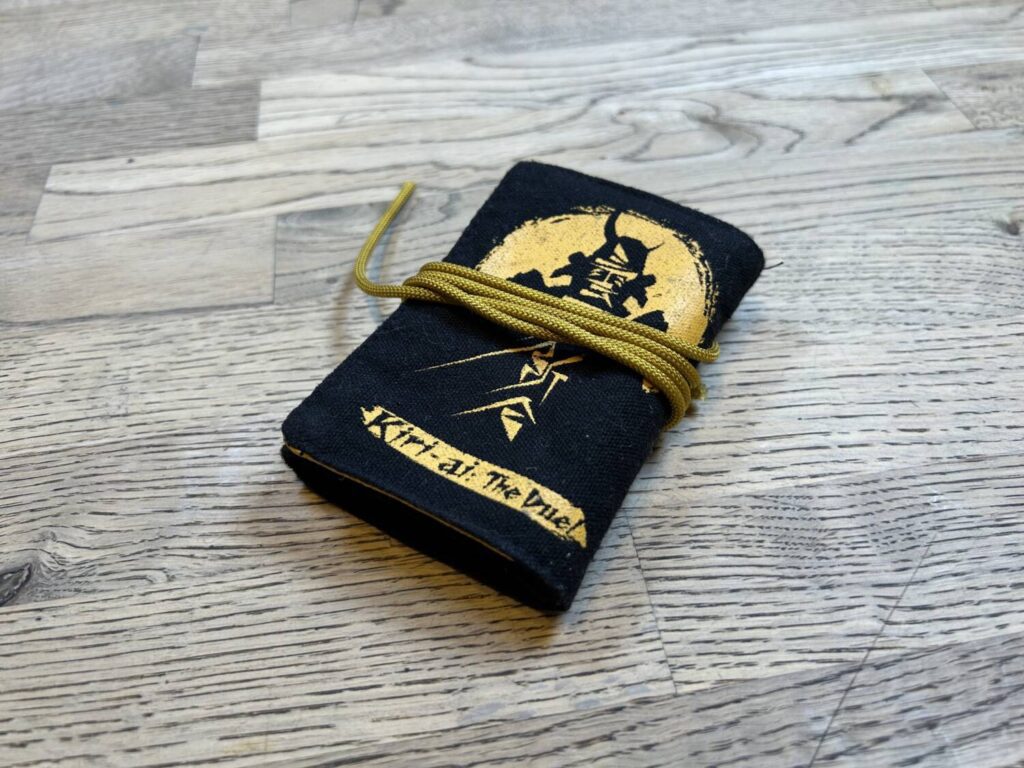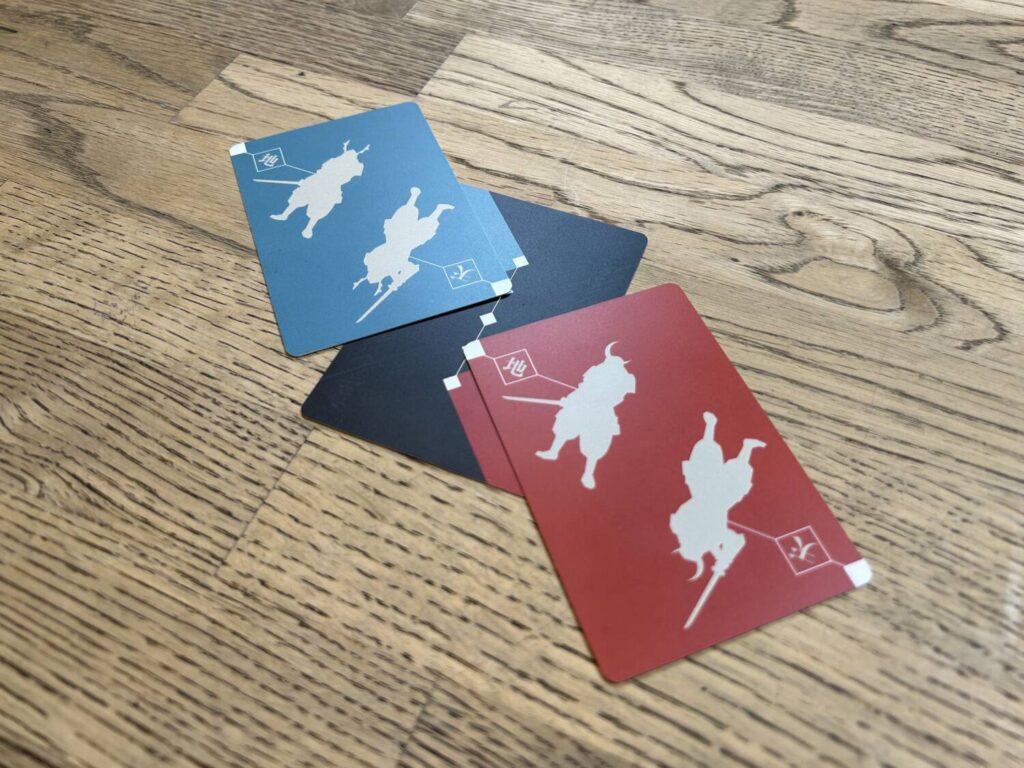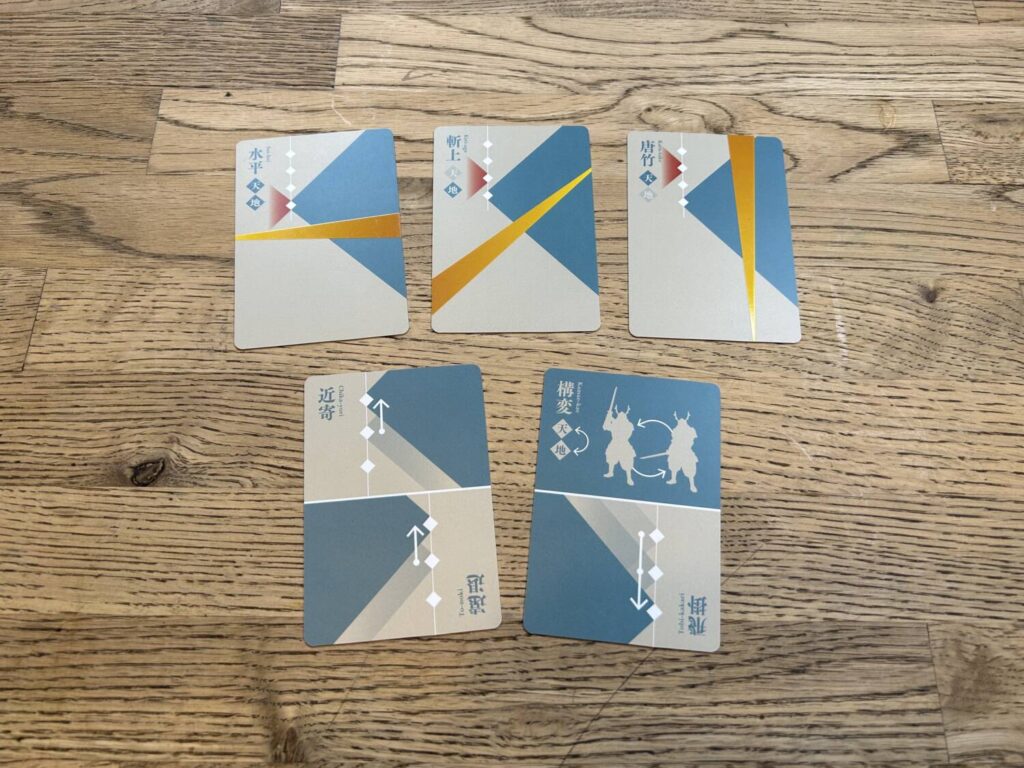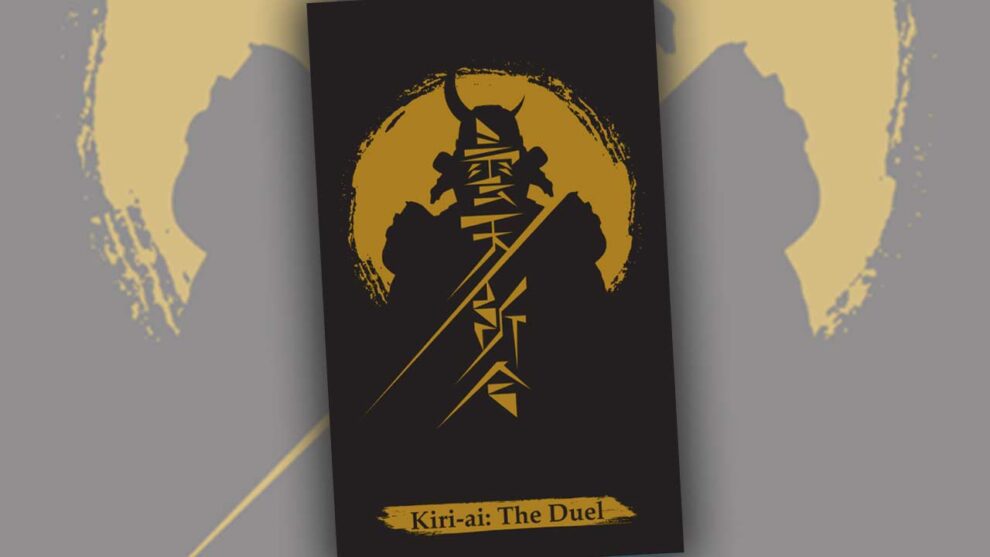Disclosure: Meeple Mountain received a free copy of this product in exchange for an honest, unbiased review. This review is not intended to be an endorsement.
The first thing you notice about Kiri-ai: The Duel is the presentation. That’s the first thing anyone notices about any board game, I realize, but here it makes an impression. Kiri-ai comes in a trifold cloth wallet, its sixteen cards and instruction manual tucked tidily into the inside pocket. My favorite part of playing this game—perhaps this is a poor omen—is pulling the cards out of that perfectly-sized pocket. It feels a bit like unsheathing a sword.

The cards are a pleasant, tactile plastic, covered in striking geometric designs. I carried Kiri-ai around with me for several weeks before I had a chance to read all of the instructions, and those cards took on a sort of talismanic quality. Designer Kamibayashi is a graphic designer, and that’s evident. These cards have a sharp, angular aesthetic unlike anything I’ve seen in a two-player card game.
The cards in your hand are divided into two categories: Movement cards and Attack cards. Movement cards change your position relative to your opponent, and allow you to switch your stance between Heaven and Earth. Attack cards allow you to execute an attack, which only succeeds if you are in the right stance and your opponent is the right distance away.

Cards are chosen two at a time, and played face down in the order in which the player would like them to be executed. Both players reveal their first card simultaneously, resolving any Movement before any Attacks. If one player manages a successful attack, the other player takes damage. Two hits and you’re out. If both players manage a successful attack, their swords ring out in the night, blade striking against blade, and neither player is hit.
The second cards are then revealed, and the process repeats itself. While the first card played each round goes back into the player’s hand, the second is set aside for a round. That leads to an interesting game state. You know one thing your opponent can’t do. In a game with a maximum of eight options per turn, that makes a big difference.

The Good, the Bad, and the Recursive Loop
Because you program your actions, and because you know a single limitation for your opponent every round, Kiri-ai has a good amount of double-think and bluffing. That’s where it shines brightest. I’m not particularly compelled by it, but the moments when my opponent and I would stare each other down, trying to read the other’s mind, are good, thematic fun. To ratchet up the tension, each player has one of three special Attack cards randomly dealt out to them at the beginning of the game, so you never quite know what your opponent is going to be able to do.
I have a single issue with this game, but it’s significant. The restrictions on movement—you cannot pass your opponent, and the movement field is a finite series of five dots—make it easy to fall into recursive loops. I’ve had two or three games end in exchanges where the outcome was determinative. Good play could have prolonged the match, but it wouldn’t have changed the results. Furthermore, some of the tie-breaking around priority of movement isn’t well-thought through, and readily leads to technically unsolvable issues of “Who moves where?” A quick, simple game should have quick, simple rules.
At first, I thought the recursive loop was a freak occurrence, but then it happened again, and differently. The rhythm of the card selection will do that to you if you aren’t careful. That could be taken as indicative of a high skill-ceiling, but I don’t think it is. Kiri-ai is too simple for that. Not to say a skilled player won’t do better. They will. What we have here is a great product, in terms of its execution, and a distracting enough game. There are worse things. There are also better.













Add Comment